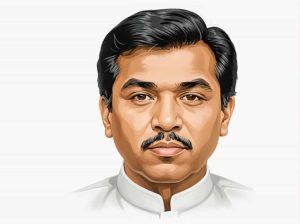The phrase “The husbandman that laboreth must be first partaker of the fruits” comes from 2 Timothy 2:6 (KJV). This verse spoken by the Apostle Paul to Timothy is a metaphor that carries deep spiritual practical and leadership lessons.
Paul uses the image of a husbandman (farmer) to illustrate diligence reward and responsibility in Christian service. This topic explores the meaning context and application of this verse along with how it applies to leaders workers and believers in their spiritual journey.
1. Understanding the Context of 2 Timothy 2:6
1.1 Paul’s Letter to Timothy
Paul wrote 2 Timothy while imprisoned in Rome nearing the end of his life. He encouraged Timothy a young leader to remain faithful despite hardships. The letter contains warnings instructions and encouragements to help Timothy lead the church effectively.
1.2 The Meaning of “Husbandman”
The term “husbandman” in biblical language refers to a farmer or cultivator of land. A farmer works hard before enjoying the harvest. Similarly in the spiritual sense believers must labor in faith before experiencing the rewards of their efforts.
1.3 “First Partaker of the Fruits”
This phrase implies that the farmer reaps the rewards of his labor before others. Paul applies this principle to Christian leaders workers and believers suggesting that those who work hard in God’s service will be the first to experience spiritual blessings.
2. The Biblical Principles Behind the Verse
2.1 Diligence Brings Reward
The Bible often emphasizes that hard work leads to blessings.
- Proverbs 10:4 – “He becometh poor that dealeth with a slack hand: but the hand of the diligent maketh rich.”
- Galatians 6:9 – “And let us not be weary in well doing: for in due season we shall reap if we faint not.”
Just as a farmer plants waters and waits for the harvest believers must remain steadfast in faith prayer and good works to see God’s blessings.
2.2 Leadership and Responsibility
Paul’s message is particularly relevant to spiritual leaders. A pastor teacher or mentor should experience God’s truth personally before teaching others.
-
Example: Jesus Christ
Jesus the ultimate leader first practiced what He preached. He endured suffering showed love and obeyed the Father before calling His followers to do the same. -
James 3:1 – “My brethren be not many masters knowing that we shall receive the greater condemnation.”
This verse reminds leaders that they are held to a higher standard and must first partake in the discipline truth and sacrifice before guiding others.
2.3 The Principle of Faithfulness
The farmer’s perseverance teaches the importance of faithfulness and patience.
- Hebrews 10:36 – “For ye have need of patience that after ye have done the will of God ye might receive the promise.”
Spiritual fruit is not instantaneous. Just as a farmer must wait for the harvest believers must trust God’s timing in answering prayers and fulfilling His promises.
3. Applications in Daily Life
3.1 For Pastors and Church Leaders
A pastor or teacher must first be nourished by God’s Word before teaching others.
- Studying Scripture is crucial before preaching.
- Personal spiritual growth leads to effective ministry.
- Leading by example fosters credibility and trust.
3.2 For Workers in Ministry
Missionaries evangelists and Christian workers must labor in the vineyard of the Lord before expecting results.
- Prayer and fasting precede breakthroughs.
- Faithfulness in small tasks leads to greater responsibilities (Luke 16:10).
- Personal experiences shape ministry effectiveness.
3.3 For Everyday Believers
The principle applies to all Christians in various ways:
- Personal Growth: Reading the Bible and praying daily brings spiritual nourishment.
- Work and Career: Hard work patience and perseverance bring rewards.
- Family Life: Parents must model faith and values before expecting children to follow.
4. Spiritual Rewards for the Faithful Worker
4.1 The Blessing of Spiritual Fulfillment
Those who work faithfully in God’s kingdom experience joy peace and fulfillment.
- Matthew 25:21 – “Well done thou good and faithful servant: thou hast been faithful over a few things I will make thee ruler over many things.”
4.2 Eternal Rewards
The ultimate reward is eternal life and a place in God’s kingdom.
- 2 Timothy 4:7-8 – “I have fought a good fight I have finished my course I have kept the faith: Henceforth there is laid up for me a crown of righteousness.”
Paul himself was an example of a faithful husbandman who labored and later reaped the reward of eternal glory.
5. Lessons from the Farmer’s Hard Work
The farmer’s journey mirrors the Christian life in many ways:
- Plowing the Land – Preparing the heart through repentance.
- Sowing the Seed – Sharing the Gospel and living righteously.
- Watering and Waiting – Praying trusting and enduring trials.
- Reaping the Harvest – Enjoying God’s blessings and eternal life.
Just as a farmer cannot rush the harvest we must trust God’s timing for His promises to unfold.
“The husbandman that laboreth must be first partaker of the fruits” (2 Timothy 2:6 KJV) teaches a profound lesson on diligence faithfulness and spiritual leadership.
- Those who work hard in faith will experience God’s blessings first.
- Leaders must partake in God’s truth before teaching others.
- Just as a farmer patiently waits for the harvest believers must persevere in faith and good works.
This verse serves as both a challenge and encouragement for Christians to live out their faith labor for the Lord and trust in His promises.



